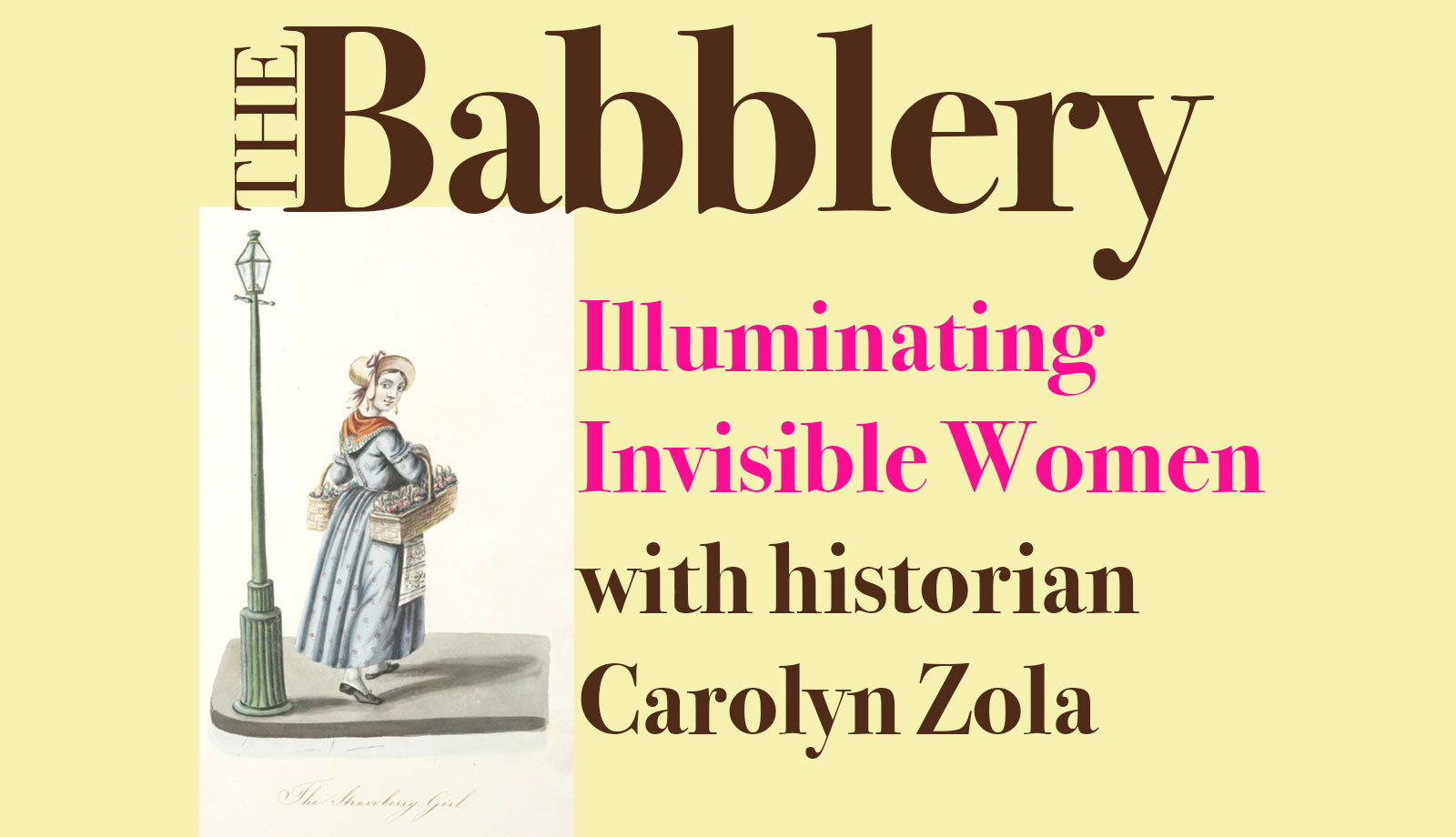
The stories we tell about ourselves have long focused on men’s experiences. The story of the United States is no exception: American women, especially working women, have not been included in our history the way that men have. Carolyn Zola is one of the budding historians working to rectify the invisibility of American women in the stories we tell.

Carolyn’s particular interest is in the history of working women in cities. In the histories we read, we are led to believe that women stayed home and were taken care of by the men in their lives. That was only true for the well-off and the married middle class. For the poor and for women who lost their male “head of household,” work was a necessity.
But these women weren’t recorded in most of the documents that survive today. Many were not literate. If they wrote letters, they were not viewed as important enough to keep. Their diaries, if they had time to write them, were not preserved as a vital part of history.
These women are invisible.
In this episode, we discuss how one woman’s work in the 21st century is illuminating some of these invisible women. Through painstaking research, Carolyn is finding, naming, and honoring them. This episode not only features Carolyn’s work, but also performances of songs and texts from the time.
Images referenced in the conversation:
For larger images and information, click the image.
Sound recordings:
- “Buy my Strawberries,” from a popular play about a child huckster, performed by Eithne Wait Pardini [click for original score]
- “Barbara Allen” by Edgar Girtain, performed by Duo L’Espiègle with Claire Trouilloud, voice, and Aurélien Sauer, viola
- 19th Century Life (Ambient Sounds) by Victorian Vault
- Street Market by Stevious42
- Farmer’s Market Sounds by canetoad
- Churchbells and Market by inchadney
- Arkansas Traveler, recorded by ecfike
- Thanks to women programmers at KSQD for our new, improved Babblery bumpers!






